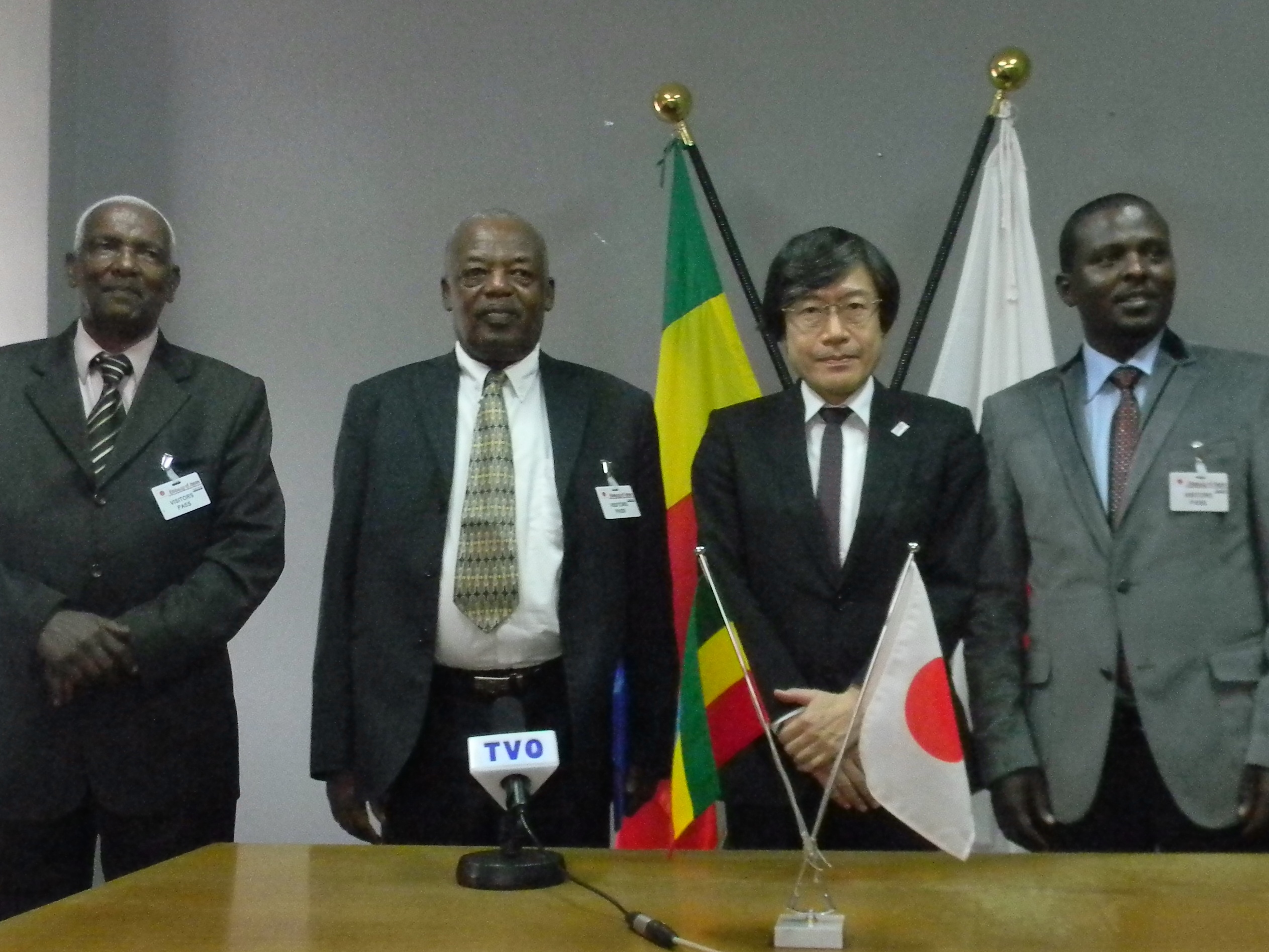| |
 |
On 6 February, 2013, Mr. Hajime KITAOKA, Minister and Charge d’Affaires a.i. of the Embassy of Japan in Ethiopia, signed three Grant Contracts for Grassroots Human Security Projects (GGP) at the Embassy of Japan with the Friendship Support Association from the Afar Region, represented by the Executive Director, Ato Gurret Ahmed, the Derashe People’s Development Association from the SNNRPS, represented by the General Manager, Ato Tamiru Getaluh Hanguo, and the Aba Woldetensae Gizaw Mothers and Children Welfare Association from Addis Ababa, represented by the Executive Director, Ato Zenebe Mamo. The total amount of funding extended was USD 306,904.
Following the signing ceremony, the second for the GGPs in the Japanese Fiscal Year 2012, Mr. Hajime KITAOKA remarked that all GGP projects are conducive to the empowerment of vulnerable and marginalized people and urged project partners for timely implementation.
The first project for the Bolahamo Primary School in the Dulessa Woreda, Afar Region, with funding of USD 101,042, was to improve the educational environment of a primary school by constructing new school buildings. The existing building only has 3 classrooms and little furniture; about 200 students are forced to study outside without desks. The new buildings will be fully furnished and installed with solar panels so that pastoralist children who work during day time can attend classes in the evening. Through this project, the educational environment for 534 students will be improved, and about 100 pastoralist children will get access to primary education through the evening class.
The second project was also an educational project which intends to expand the Ediget Full Cycle and Special Ability School in the Derashe Woreda, SNNPRS, with USD 121,148. The school is the only one in the Woreda which has special ability classes, and now there are about 20 special ability students learning at the school. However, only 2 old classrooms, divided into 4 spaces each, are allocated for the special ability students. In addition, it is thought that there are about 110 disabled children in the Woreda who do not go to school. In order to improve this situation in the Woreda, the project will construct one school block with 5 classrooms for the special ability students and one library block for the whole school. Thus, all the disabled children will have access to primary education and all the students will enjoy receiving adequate education in an appropriate environment.
The third project was for water supply systems to improve sanitation and hygiene in the Bole Bulbula Woreda, Adddis Ababa with funding of USD 84,714. Through this project, a water supply system, including 5 spring cappings, 5 water reservoirs, 5 water points, and two hand dugwells, will be installed in 7 villages. A cattle trough will also be set up so that the water for people and animals is separated. As a result, access to safe water will be drastically improved, and 9,910 residents will enjoy safe water without the fear of water-borne diseases.
The Government of Japan has placed priority on human security for the vulnerable and marginalized people in society, and the GGP has played a valuable role to help such people throughout Ethiopia. Since 1997, over 300 projects have been implemented under this scheme in such sectors as education, water supply, health services, and other basic human needs.
6 February, 2013
Addis Ababa
| |



